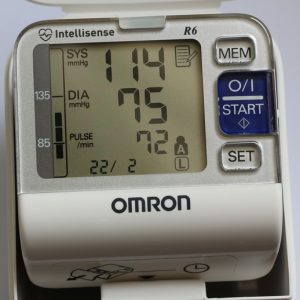I’m guessing that the majority of you have seen the increasingly popular “gluten-free” diet trend displayed in many health-related magazines, books or even talk shows. But why is everybody so obsessed with this new diet fad? Well, apparently, it’s supposed to be one of the healthiest changes that you can make to your lifestyle. One scientific study even suggests that a gluten-free diet can reduce the level of “bad” fats in your blood that lead to heart disease, but is gluten-free really as healthy as it’s claimed to be?
Being “gluten-free” first arose as a treatment for individuals with celiac disease, a disorder that causes damage to the small intestine from ingesting gluten. Celiacs experience many symptoms, ranging from severe gastrointestinal issues to even developing anemia and behavioural changes. Unfortunately, the only real way to combat this is through the complete elimination of gluten from one’s diet.
Gluten is a protein found in wheat, barley, and rye. As awareness of celiac disease has increased, so have gluten-free alternatives to popular foods. As a response, many non-celiacs have been transitioning to this diet as well, assuming that it is a healthier lifestyle. However, relatively new evidence suggests that being “gluten-free” isn’t as beneficial to your health as you may believe.
Dr. Travis speaks about the gluten-free diet industry.

In Digestive Diseases and Sciences, a study observed the risk of metabolic and cardiovascular disease among non-celiac individuals following a gluten-free diet. The study concluded that there was an association between being gluten-free and weight management, but this is likely because gluten-free individuals do not consume refined wheat products, which are harmful to your health. Interestingly, there was no difference in the risk of metabolic disease or heart disease between gluten-free and non-gluten-free individuals.
Additionally, the Mayo Clinic suggests that those who are adopting a gluten-free diet should be wary of losing some essential vitamins and nutrients, like iron, calcium, and fiber. Whole grains are usually enriched in these, so you would have to be diligent in finding them in other sources.
Gluten-free individuals should also be mindful of the fact that many store-bought, gluten-free foods are no better for you than the versions made with gluten. This is because many of these foods actually contain more sugar, fat, and calories than the original versions, leading to weight-gain rather than weight-loss. It is a common misconception that just because something is “gluten-free,” it is also healthier.
Overall, the stance on whether or not a gluten-free diet is beneficial to non-celiacs is very controversial. As long as one is aware of what is actually inside the gluten-free foods that they are consuming, as well as of all the daily nutrients that they should be obtaining, then this diet is potentially beneficial. Although, it may not be worth it if whole grains, in moderation, have shown no detrimental effect on health. The most important thing for non-celiacs to remember is that a “gluten-free” label does not automatically equal “healthy.”
By Silvana Jakupovic








